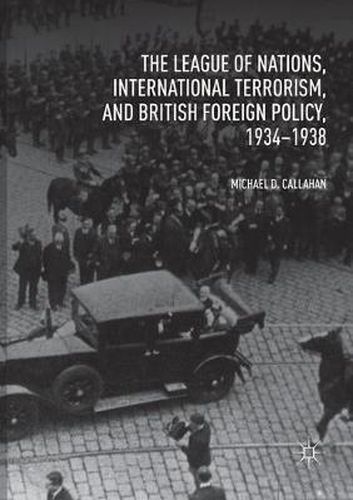Readings Newsletter
Become a Readings Member to make your shopping experience even easier.
Sign in or sign up for free!
You’re not far away from qualifying for FREE standard shipping within Australia
You’ve qualified for FREE standard shipping within Australia
The cart is loading…






This book examines the League of Nations, state-supported terrorism, and British foreign policy after the rise of Hitler in the 1930s. It argues that with strong leadership from Britain and France, the League made it possible for states to preserve the peace of Europe after terrorists aided by Italy and Hungary killed the King of Yugoslavia in 1934. This achievement represents the League at its most effective and demonstrates that the organization could carry out its peacekeeping functions. The League also made it possible to draft two international conventions to suppress and punish acts of terrorism. While both conventions were examples of productive collaboration, in the end, few governments supported the League’s anti-terrorism project in itself. Still, for Britain, Geneva served the cause of peace by helping states to settle their differences by mediation and concession while promoting international cooperation, a central conviction of British appeasement policy in the 1930s.
$9.00 standard shipping within Australia
FREE standard shipping within Australia for orders over $100.00
Express & International shipping calculated at checkout
This book examines the League of Nations, state-supported terrorism, and British foreign policy after the rise of Hitler in the 1930s. It argues that with strong leadership from Britain and France, the League made it possible for states to preserve the peace of Europe after terrorists aided by Italy and Hungary killed the King of Yugoslavia in 1934. This achievement represents the League at its most effective and demonstrates that the organization could carry out its peacekeeping functions. The League also made it possible to draft two international conventions to suppress and punish acts of terrorism. While both conventions were examples of productive collaboration, in the end, few governments supported the League’s anti-terrorism project in itself. Still, for Britain, Geneva served the cause of peace by helping states to settle their differences by mediation and concession while promoting international cooperation, a central conviction of British appeasement policy in the 1930s.